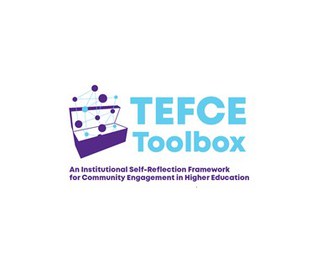Key Action 3 - Forward-Looking Projects
This action will aim to foster innovation, creativity and participation, as well as social entrepreneurship in different fields of education and training, within sectors or across sectors and disciplines. Forward-Looking Projects are large-scale projects that aim to identify, develop, test and/or assess innovative (policy) approaches that have the potential of becoming mainstreamed, thus improving education and training systems. They will support forward-looking ideas responding to key European priorities and that have the potential of becoming mainstreamed and giving input for improving education, training and youth systems, as well as to bring a substantial innovative effect in terms of methods and practices to all types of learning and active participation settings for Europe's social cohesion.
As part of Forward-Looking Projects, projects can be implemented that
-
address different educational sectors or bridge educational sectors. (Lot 1: Cross-sectoral priorities)
Proposals submitted under Lot 1 must address one of the following priorities:-
Priority 1: Supporting high quality and inclusive digital education, in line with the Digital Education Action Plan
-
Priority 2: Supporting education and training systems to adapt for the green transition
-
-
support the implementation of the principles and objectives of the European Pillar of Social Rights Action Plan, the European Skills Agenda, the Council Recommendation on vocational education and training for sustainable competitiveness, social fairness and resilience and the Osnabrück Declaration on vocational education and training as an enabler of recovery and just transitions to digital and green economies. (Lot 2: Vocational Education and Training (VET))
Proposals submitted under Lot 1 must address one of the following priorities:-
Priority 3: Supporting the Pact for Skills
-
Priority 4: Structures and mechanisms for Applied research in VET
-
Priority 5: Green skills in the VET sector
-
-
support the implementation of the principles and objectives of the European Pillar of Social Rights Action Plan, the European Skills Agenda, and the Council Recommendation on Upskilling Pathways: New Opportunities for Adults. (Lot 3: Adult education (AE))
Proposals submitted under Lot 3 must address the following priority:-
Priority 6: Upskilling Pathways: New Opportunities for Adults
-
Eligibility Criteria
-
The partnership must include at least three full partners from a minimum of three EU Member States and third countries associated to the Programme (including at least two EU Member States)
-
The following organisations can be involved as full partner, affiliated entity or associated partner: Any public or private organisations that are active in the fields of education and training, that are key drivers of innovation and established in an EU Member State or third country associated to the Programme (see section “Eligible countries” in Part A of this Guide)
Duration of the project
-
24 to 48 months
-
Budget: 700,000.00 EUR to 1,000,000.00 EUR
Time frame for the application
-
annual call (November)
-
Application deadline in March
-
Project start 1st November, 1st December or 1st January
An overview of the consulting and management services of the EPC can be found here: https://tu-dresden.de/forschung-transfer/services-fuer-forschende/european-project-center/unser-service
Contact at EPC
 © TU Dresden
© TU Dresden
Project Manager
NameMr Dr. Franz Kapplusch
Erasmus+
Send encrypted email via the SecureMail portal (for TUD external users only).
Visiting address:
FAL Falkenbrunnen BT-A Würzburger Straße 35
01187 Dresden


